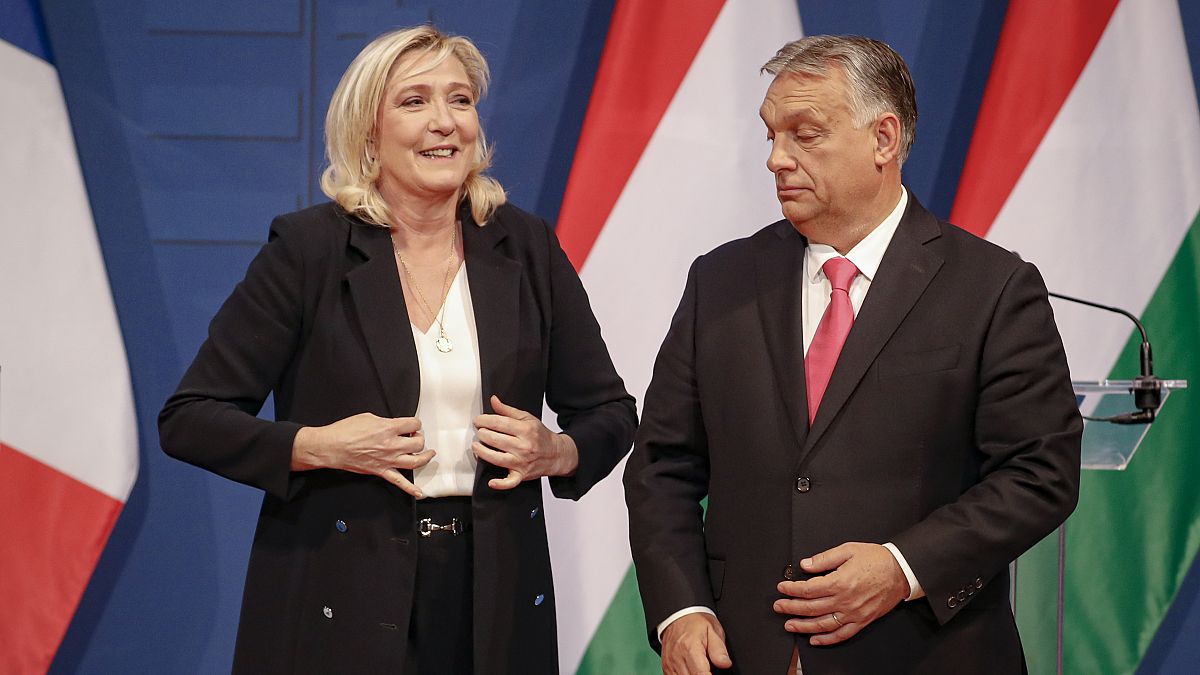The formation of a new far-right alliance in Europe, known as the Patriots for Europe, has garnered attention as Hungary’s ruling party, Fidesz, seeks to lead the movement. The alliance, which includes parties from Hungary, Austria, and Czechia, aims to become the largest hard-right group in the European Parliament. With potential new members such as Portugal’s Chega! and Italy’s Lega, the group could have a significant impact on the political landscape of the EU.
While Chega! and Lega currently sit with the Identity and Democracy group in the European Parliament, their potential move to the Patriots for Europe alliance could shake up the dynamics of far-right politics in Europe. With the addition of these parties, as well as others considering joining, the group could quickly become one of the largest in the EU chamber. However, they still need to meet certain requirements, such as having MEPs from seven EU members and demonstrating a shared political affinity.
The Patriots for Europe alliance is also eyeing other parties to join their ranks, including Poland’s Law and Justice party, which could significantly strengthen the group. If successful in convincing other parties to join, the Patriots could become a major player in the European Parliament. Their formation could also impact existing groups, such as the European Conservatives and Reformists and the Identity and Democracy group, by potentially luring away their members.
There is a sense of urgency among far-right parties to solidify their positions before the upcoming deadline for group formation in the European Parliament. The formation of the Patriots for Europe alliance is seen as a way for Viktor Orbán to gain leverage and establish himself as a key player in the far-right movement. With constitutive meetings for various groups being postponed, there is a race against time for parties to align themselves strategically to maximize their influence in the EU chamber.
The competition among far-right parties reflects tensions and power struggles within the movement, as parties vie for influence and position themselves for key roles in the European Parliament. The outcome of these negotiations could reshape the political landscape in Europe and impact the dynamics of decision-making within the EU. As parties weigh their options and consider alliances, the stage is set for a significant realignment of far-right politics in the European Parliament.
In conclusion, the emergence of the Patriots for Europe alliance represents a new chapter in the evolution of far-right politics in Europe. With Hungary’s ruling party leading the charge, the alliance has the potential to become a major player in the European Parliament. As parties jockey for position and seek to consolidate their influence, the political landscape in the EU could see significant changes in the coming days and weeks. It remains to be seen how these developments will impact decision-making processes and power dynamics within the EU chamber.











